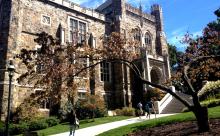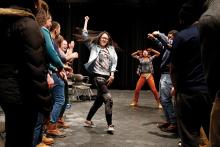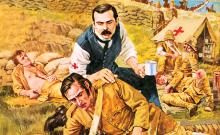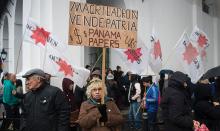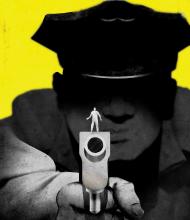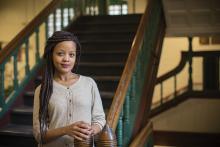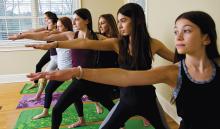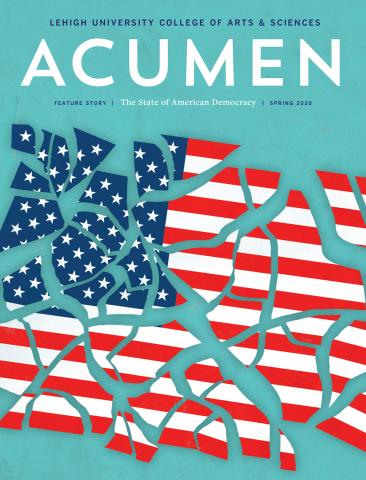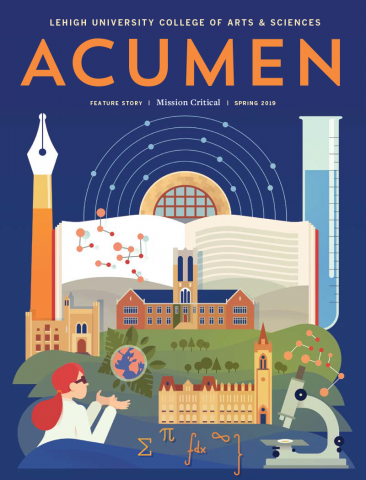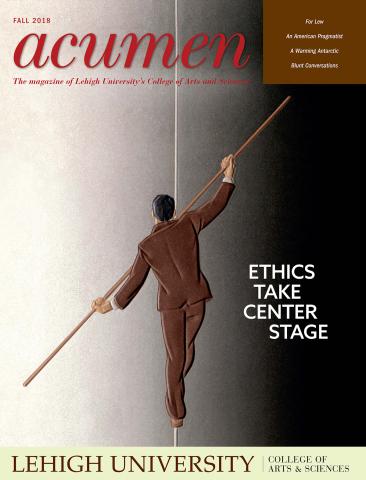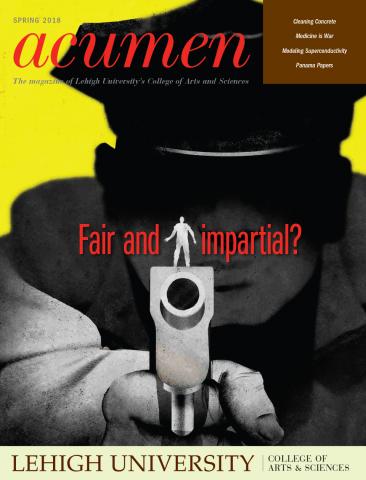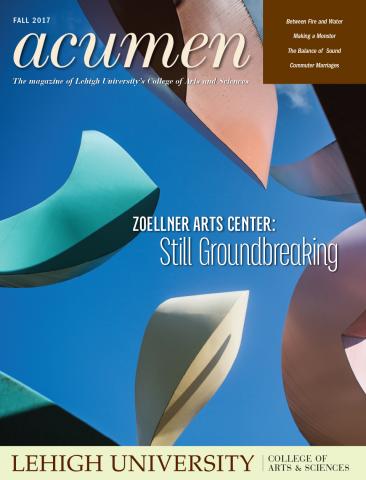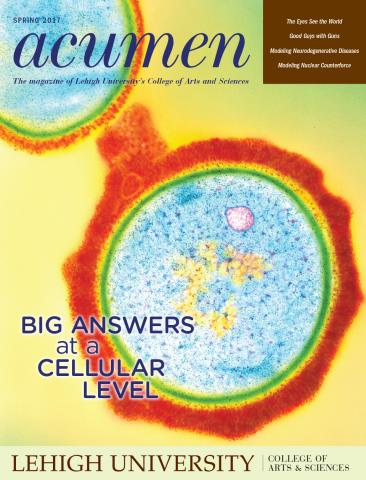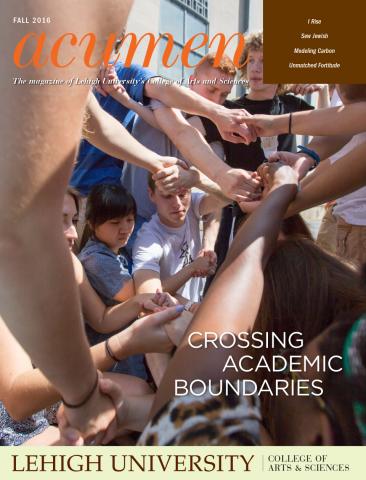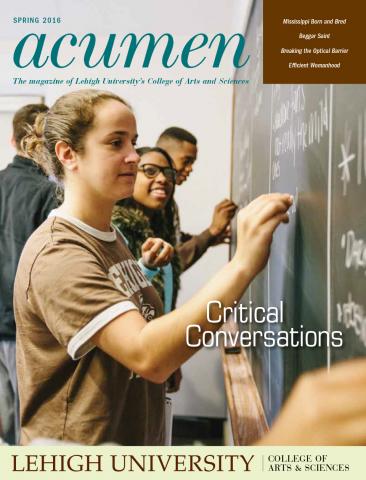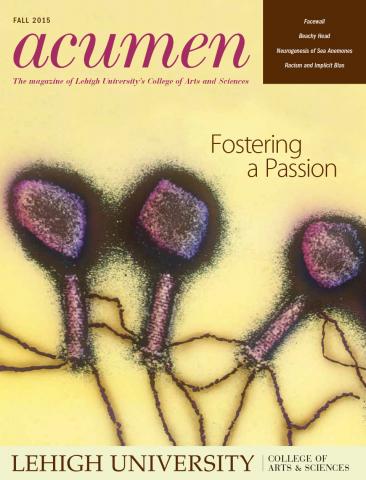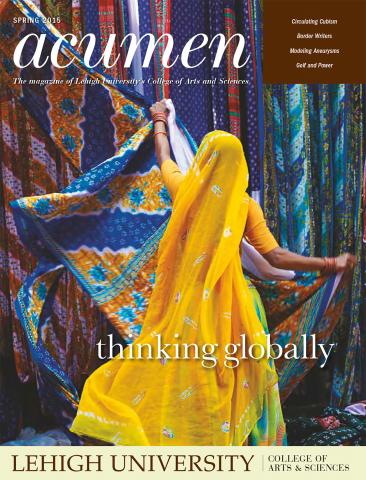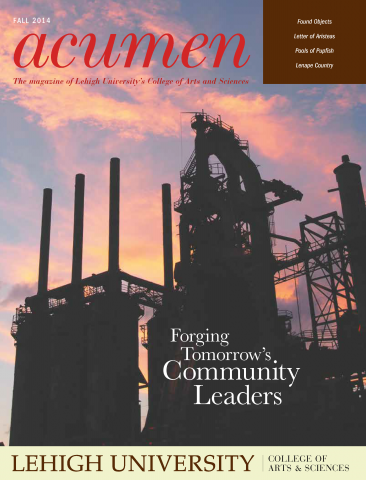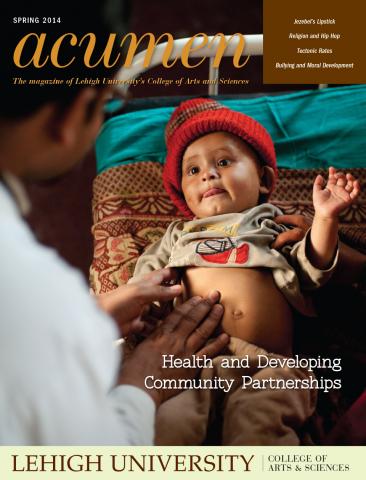
With the fall of the Berlin Wall, Germany became the focal point as the country attempted to integrate and advance culturally and politically. In the mid-1990s, a new group of Berlin-based auteur filmmakers emerged, and this school of filmmaking is the focus of research by Olivia Landry.
Landry, assistant professor of German in the department of modern languages and literatures, examines contemporary culture, film and theatre in Germany, specifically in Berlin. In her forthcoming book, Movement and Performance in Berlin School Cinema, she explores the influence of live theatre in the films by directors such as Christian Petzold, Angela Schanelec and Thomas Arslan. Influenced by the radically experimental films of New German Cinema, these more recent films play with form and the possibility of interactive, embodied and even live cinema experiences in our hyper-digitalized and -mediatized age.
“One of the things I like about being in German studies is that I get to work in various media,” Landry says. “I took contemporary alternative cinema in a different direction, thinking about movement, thinking about performance. I’m interested in movement—movement of information, movement flows, rhythms, movement of images and the movement of bodies. This can mean, from a very social, political, cultural perspective, migration and migration studies. Most contemporary national cinemas are analyzed under this banner of slow cinema. There isn’t a lot of editing. There isn’t a lot of camera movement. I want to think about these films in a different way, namely through the movement of bodies on screen. There is a lot of diegetic movement in these Berlin School films.”
Working off the finding of her book, Landry is now exploring contemporary German theatre, focusing on what is known as postmigrant theatre. After World War II, migrant workers made their way to then-East Germany to help rebuild the country, many of them from Turkey. From 1961 to 1973, many Turkish migrants made their way to West Germany, and many of them stayed and brought their families. The Turkish community is the largest minority community in Germany presently. A theatre movement developed from this that was bilingual or Turkish and has expanded to look at a broader perspective of cultural diversity and LGBTQ narratives.
Landry is exploring the cultural, social and political ramifications of what she terms “theatre of anger,” examining scripts and productions written since 2006. Many of these performances are staged at the Maxim Gorki theatre, which promotes the Exile Ensemble and employs actors from Syria and Afghanistan. Shows are often accompanied by discussion panels, as many of the artists are activists.
“Anger is an important narrative of this theatre,” she says. “It is a term and an effect that is often spoken about in a negative light, but I want to recuperate this term in its Aristotelian tradition of social and political justice. Anger becomes a response to injustice, and in many of these plays, anger speaks to social and political injustice.”

